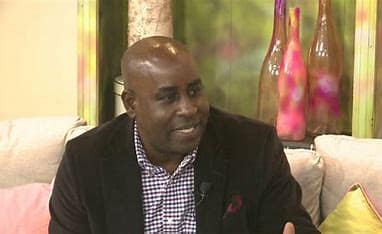In an age of rapid technological advancement, where artificial intelligence can write essays, summarize books, and even mimic human conversation, it’s easy to believe that success is just a few clicks away. But beneath every powerful tool lies a deeper truth: without mastering the fundamentals, even the most advanced technologies are little more than empty potential.
Two stories—one from a prison cell and another from a high school classroom—remind us that greatness begins with the basics.
Malcolm X: Literacy as Liberation
Before he became one of the most influential voices in American history, Malcolm X was a prisoner grappling with frustration. He envied the eloquence of others and yearned to express himself with clarity and conviction. So he began a journey that would change his life: he taught himself to read and write.
Using a dictionary, Malcolm painstakingly copied every word, page by page, learning not just vocabulary but the rhythm and structure of language. This self-imposed education unlocked a world of ideas. Books became his teachers, and reading became his liberation. In his autobiography, he wrote, “I could spend the rest of my life reading, just satisfying my curiosity.”
Malcolm’s transformation wasn’t powered by technology or privilege—it was built on the foundation of literacy. His mastery of language allowed him to articulate complex ideas, challenge injustice, and inspire generations.
Thomas Friedman: A Teacher Named Hattie
Decades later, in a suburban high school in Minnesota, another young man was discovering the power of fundamentals. Thomas Friedman, now a Pulitzer Prize-winning journalist and New York Times columnist, credits his high school journalism teacher, Hattie Steinberg, for shaping his career.
“I took her journalism course in 1969 and never needed—or took—another journalism course,” Friedman wrote. Hattie didn’t just teach him how to write a lead or transcribe a quote. She instilled discipline, precision, and a respect for the craft. These fundamentals became the bedrock of Friedman’s career, enabling him to report on global affairs with clarity and insight.
His story is a testament to the power of great teaching and the importance of mastering the basics before reaching for the extraordinary.
A Personal Reflection: Listening to Greatness
As a young adult, I was captivated by the power of great oratory. I listened to Dr. Martin Luther King Jr.’s “I Have a Dream” speech over and over again, not just for its message, but to understand how it was constructed—how it moved hearts and stirred minds.
I was also deeply influenced by the preaching of Gardner C. Taylor, particularly his sermon “In His Own Clothes”, first delivered and recorded at the 1982 Hampton University Ministers’ Conference. In it, Taylor vividly depicted the crucifixion of Christ, emphasizing that Jesus went to the cross not in borrowed robes, but in His own clothes—symbolizing authenticity, sacrifice, and divine purpose. With poetic repetition and thunderous delivery, Taylor declared:“In His own clothes, He climbed the hill at Golgotha. In His own clothes, He asserted His role as Redeemer… In His own clothes, He fixed it and it’s alright now! It’s alright now!”
Another sermon that shaped my understanding of rhetoric was “The Rending of the Veil” by James S. Stewart, preached in 1952. Stewart, a Scottish theologian and preacher, delivered this message at Union Theological Seminary in New York. Drawing from Mark 15:38, he explored the tearing of the temple veil at Christ’s death as a symbol of divine access—God breaking the barrier between the sacred and the ordinary. Stewart’s sermon was a masterclass in expository preaching, blending theology, history, and emotion to reveal the profound implications of Christ’s sacrifice.
I listened to these sermons not just for inspiration, but to learn—to see how these masters crafted their messages. The common thread was clear: mastery of the fundamentals of rhetoric—ethos (credibility), pathos (emotion), and logos (logic).
Why Fundamentals Matter More Than Ever
Today’s youth are growing up in a world filled with smart devices, instant answers, and AI-powered tools. It’s tempting to rely on these technologies to do the heavy lifting. But here’s the catch: tools are only as powerful as the hands that wield them.
Artificial intelligence can help you write faster, research deeper, and communicate more efficiently. But if you don’t understand the structure of a good argument, the nuances of grammar, or the logic behind a persuasive essay, AI becomes a crutch rather than a catalyst.
Mastering the fundamentals—reading, writing, critical thinking—is what allows you to use AI effectively. It’s the difference between copying and creating, between consuming and contributing.
A Call to Young Minds
To every young person reading this: your journey begins with the basics. Don’t rush past them. Embrace them.
Read widely—not just social media posts, but books that challenge your thinking. Write often—not just texts, but essays, stories, and reflections that sharpen your voice. Ask questions. Seek mentors. Practice discipline.
Whether you dream of becoming a journalist, an entrepreneur, a scientist, or an artist, your success will be built on the foundation of the fundamentals. Malcolm X didn’t need a classroom to become a scholar. Thomas Friedman didn’t need a college course to become a journalist. What they had was a commitment to learning and a respect for the basics.
The Future Is Yours to Shape
AI is here to stay. It will change industries, redefine careers, and open doors we can’t yet imagine. But it will never replace the human mind’s ability to think deeply, passionately, and communicate clearly.
So master the fundamentals. Build your foundation. And then, use every tool at your disposal to build something extraordinary.Your story is waiting to be written. Make sure you have the skills to write it well.


